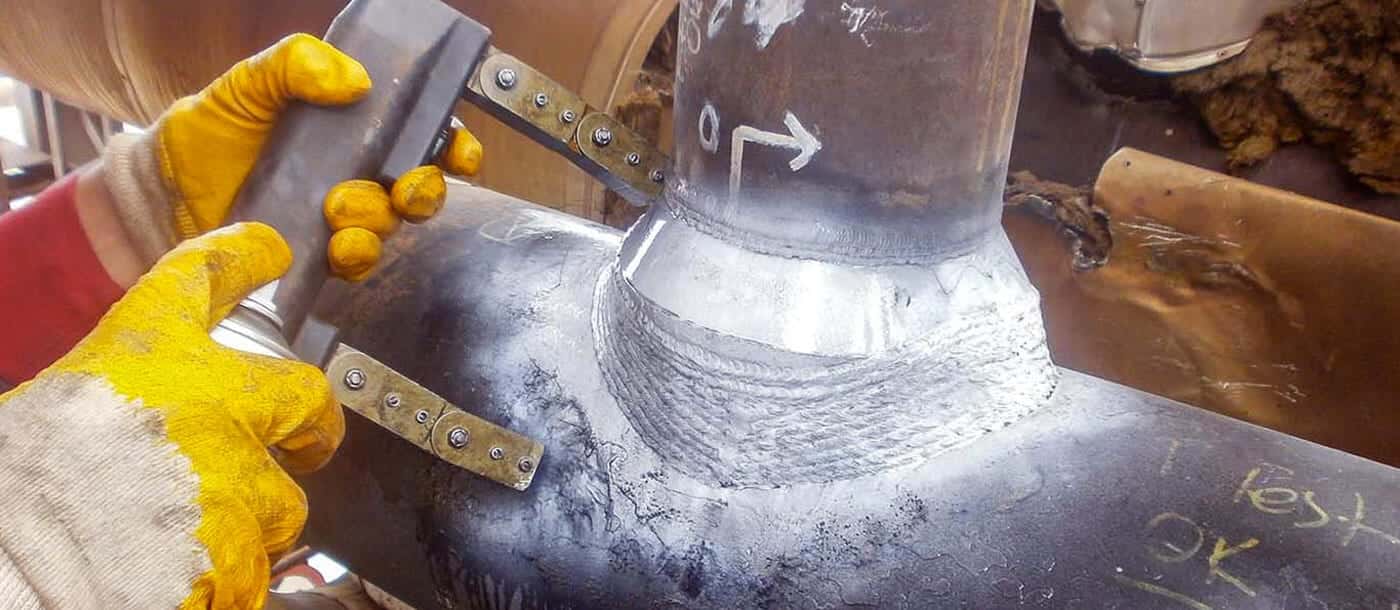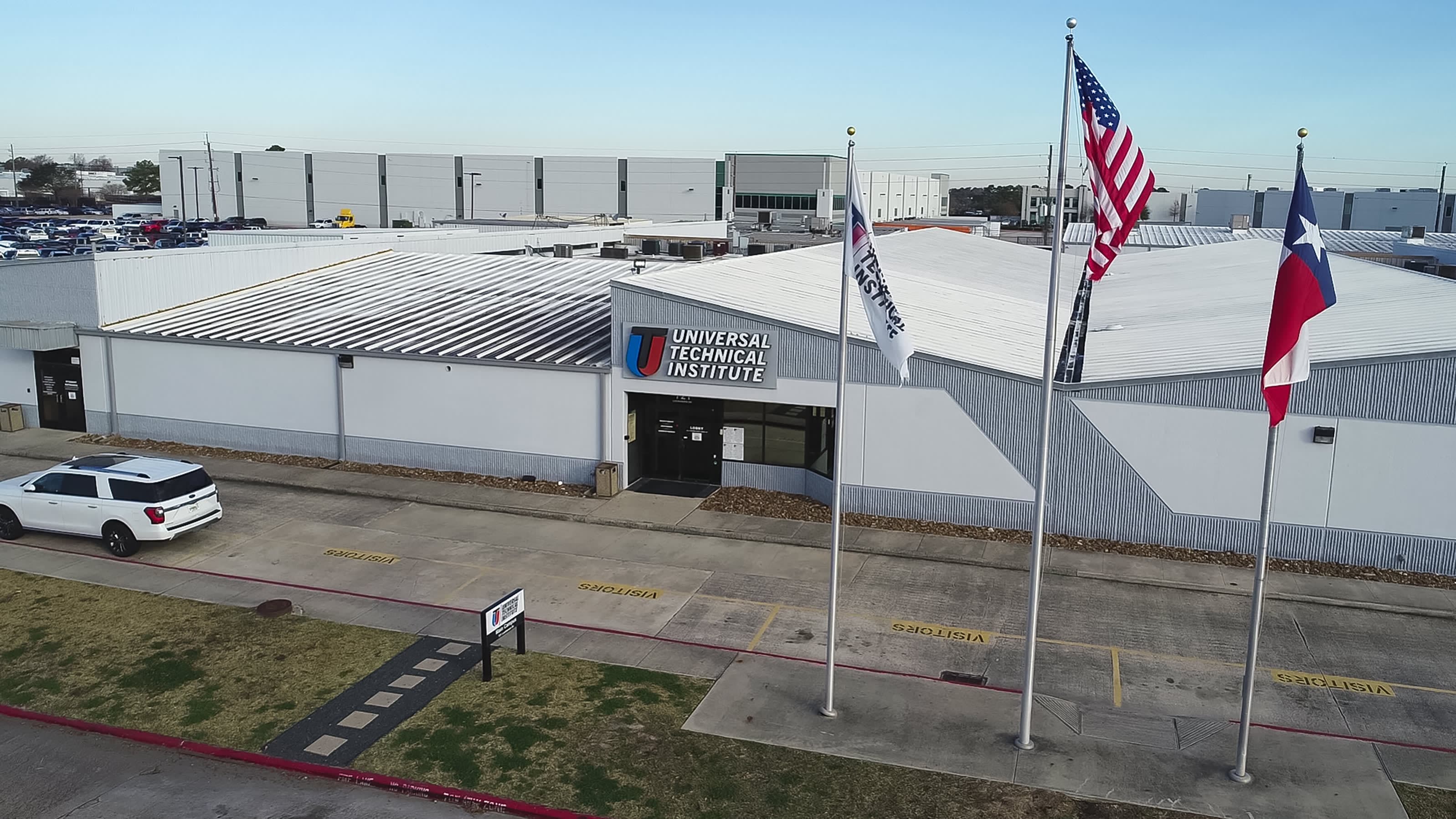Non-Destructive Testing Program Overview
In Universal Technical Institute's (UTI) Advanced Non-Destructive Testing Technician program, students are introduced to the primary areas of non-destructive testing: eddy current testing (ET), visual testing (VT), magnetic particle testing (MT), ultrasonic testing (UT), radiographic testing (RT) and liquid or dye penetrant testing (PT). This training prepares them for entry-level work in a variety of industries, from oil and gas and manufacturing to power generation and aviation.1
Most of our grads start out prepared to work as entry-level technicians or in other entry-level roles. As with any industry, over time, they may be able to advance in their careers with experience and hard work.
Some entry-level roles include non-destructive testing technician, quality control technician and inspector. Some advanced roles include industrial radiographer, NDT/NDE technician level I, RT assistant/helper, QC/QA inspector and QC/QA inspector assistant.77
Unseen But Essential
9 months
1 campus
Non-Destructive Testing (NDT) Technician Training
Non-destructive testing technicians are responsible for ensuring that products coming out of a factory meet the specifications set by the facility they work for. A majority of work involves maintenance on existing equipment, including off-shore drilling, oil refineries and more. They inspect products to ensure their structural and visual components are up to quality and safety standards.
The nine-month Advanced Non-Destructive Testing Technician program provides an introduction to the non-destructive testing industry and prepares graduates to apply for entry-level positions in the field. Graduates who are employed typically work with their employers to test for and obtain on-the-job training (OJT) hours in the field.
Non-Destructive Testing Schools Near You
Wondering, “Are there non-destructive testing schools near me?” If you live in Texas, click below for NDT training!
Non-Destructive Testing (NDT) Courses
Our courses cover essential knowledge and skills needed to work in the NDT industry. They start with the basics, so no prior experience is required. Plus, classroom training hours meet the requirements of ANSI/ASNT CP-189 and ASNT SNT-TC-1A standards — certification systems recognized across the industry. Our classes include:
- Penetrant Theory and Application I & II
- Eddy Current Theory and Application I & II
- Magnetic Particle Theory and Application I & II
- Radiography Theory I
- Ultrasound Theory and Application I & II
- Visual Theory and Application I & II
Invest in Your Future
Quality control and inspections are important steps taken by industries nationwide. Employers are looking for non-destructive testing technicians with the right education.
$77,390
72,000+
Frequently Asked Questions
Non-destructive testing (NDT) technicians are professionals who help ensure the materials and structures we encounter every day are safe for use.
Becoming an NDT technician often requires the completion of a training program. You may also be required to have certain certifications. At UTI, students are introduced to the primary areas of non-destructive testing, which when added to their on-the-job training (OJT) hours in the field may enable them to test and qualify for certification in specific disciplines.1
To become an NDT technician, you must have hours in the classroom and on-the-job field training (OJT) documented on paper. UTI can provide the classroom hours, and upon graduation and securing employment, your employer can provide the OJT.1 *The employer is always the source of his or her “certs.”


